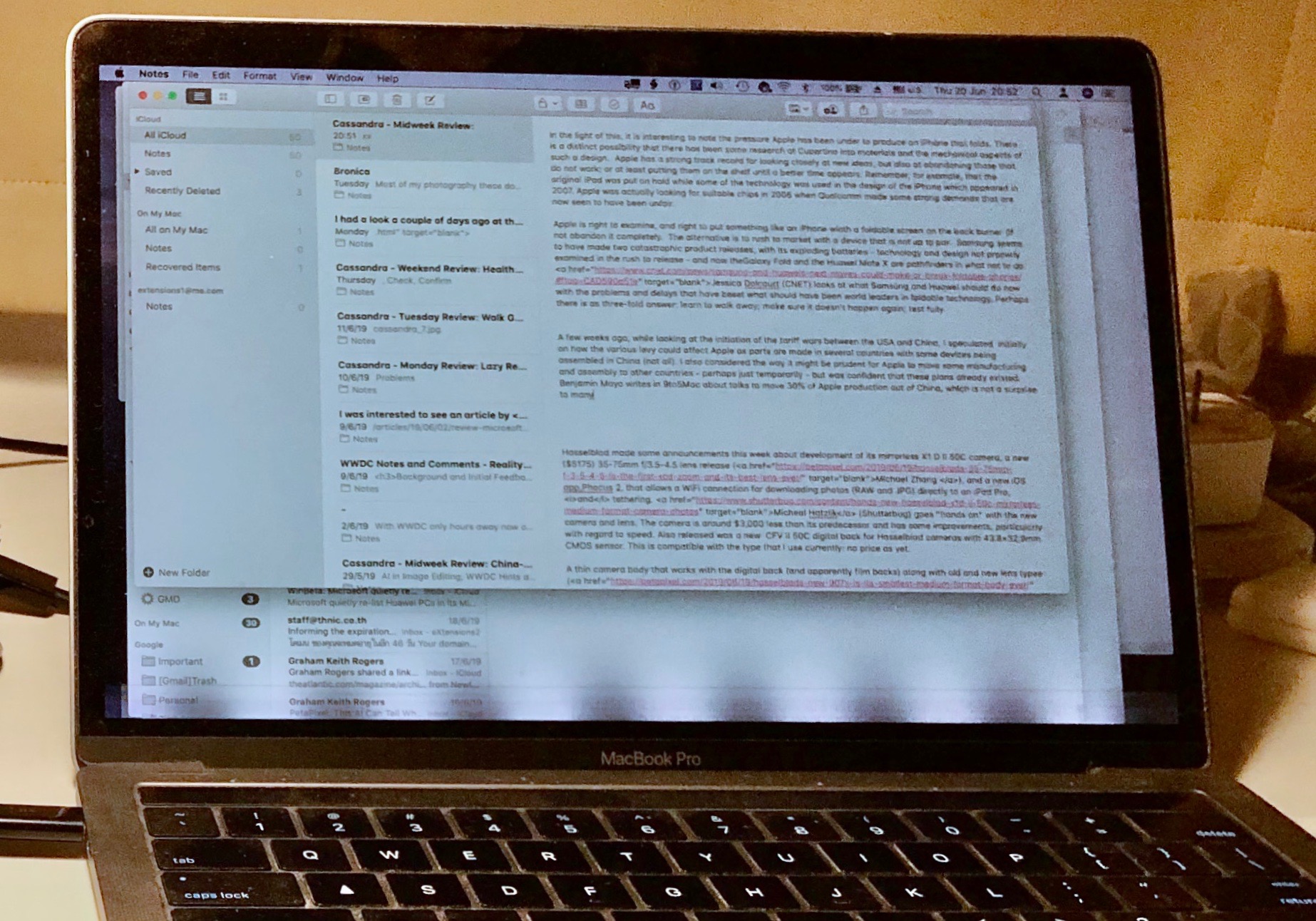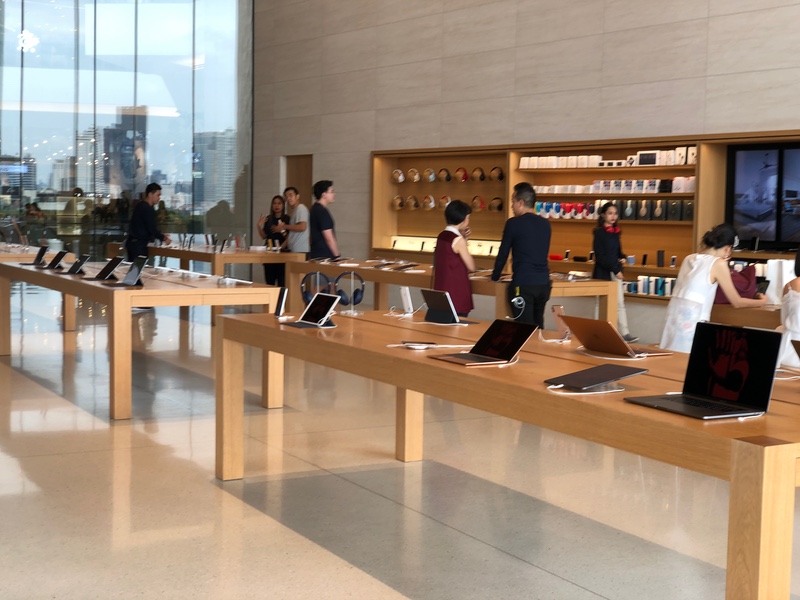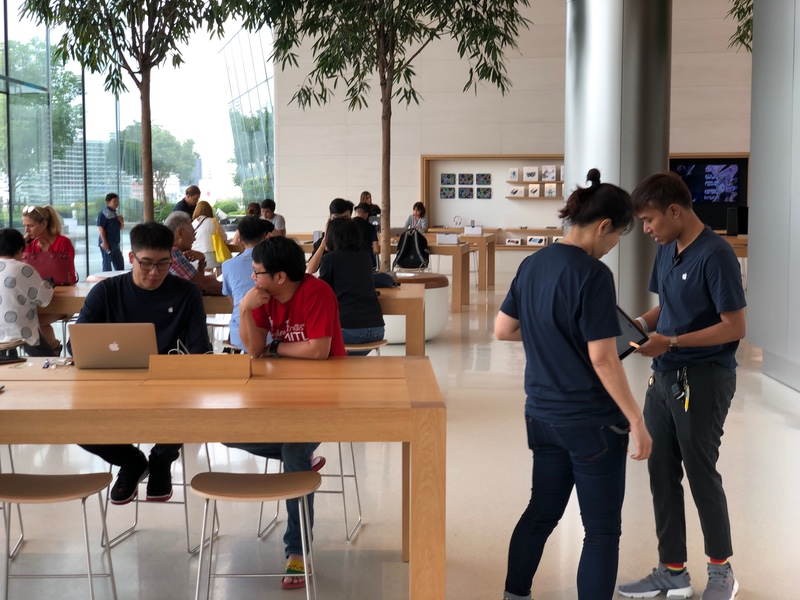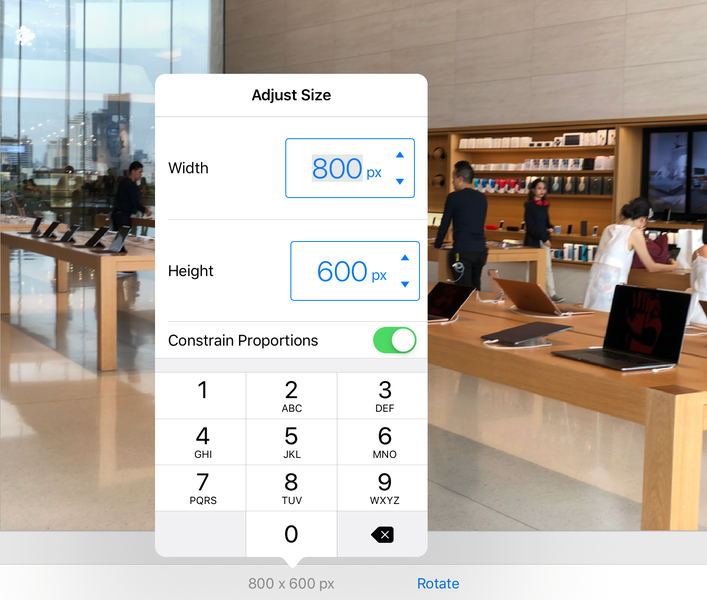|
|
Cassandra - Monday Review: Bangkok's Genius Grove and Other EventsBy Graham K. Rogers
Apple has a really competent design department as well as hundreds of competent engineers who will be able to take up the slack. While Ive certainly enjoyed his time at Apple he is probably happier mapping out design ideas and producing mock-ups in a small studio. Well, now he can, but he will have Apple as a customer: at least as far as consultation is concerned, which suggests to me that the links are strong, but the day to day responsibilities of Chief Design Officer are not his to worry about now. Daniel Eran Dilger (AppleInsider) takes a long look at Ive's tenure, some of the products he was responsible for, and future design opportunities for Apple.

Spotlighting on the MacBook Pro

Apple Store - Icon Siam, Bangkok

Apple Store - Icon Siam, Bangkok I will collect the Mac on Friday, which leaves me 7 days working on iPhone and iPads. I have to make more adjustments than I expected, with the first appearing when I came to type this. Notes displays a text like a web page if it is marked up with HTML. I switched back to iA writer and solved that, but then some characters are not identified as ASCII - vanilla text - and that produces spurious characters on a web page. I tried downloading a text editor for the iPad Pro, but that did not fix the problem. I ended up working in BBEdit on my Mac mini when I went into the office on Monday: not what I wanted at all. I also had to check iFTP Pro as I had never used it on the current iPads. I found the site password, clicked Go and was immediately online. However, the app has been updated and I am unable to find the locations for files on the iPad as I could before. I found another FTP app (FTP Client Pro) which does what the other app did before. I have two other problems which do not have fixes: RSS feed software does not seem to exist for the iPad (reading, Yes; writing, No). There is also no suitable app for the Canon flatbed scanner I use.
As well as managing the html content, I also have to work with images and make sure all of this is saved in the right place so that when I return to the Mac, I can pick up with the website management as it was before. For example, if I export an image to the site folder, it remains the same size (e.g. 2.9MB) and needs to be optimized in 3rd party software. That was actually easily accomplished in Pixelmator. I am on a fairly steep learning curve.

Image resizing in Pixelmator on the iPad Pro Apple's next OS releases are moving apace with several news sources reporting about the arrival of betas for WatchOS, iOS13 (and iPadOS), and MacOS 10.14.6, along with the public beta of Catalina. I keep my iPad Pro and iPhone away from any beta software, although from what I have seen there are some nice changes coming with the updates. A purpose of a beta release is to test and some things are not finished, so there are occasional problems. Those who enter a beta program are warned not to install on devices used for critical applications - like a company's server - and to back up data. These should be obvious, but the data backup is not always done as part of a normal routine. When the final OS versions are released, there are always those who have problems: an update like that will exacerbate any already-existing problems, and rather than analyze what could have been wrong, users blame Apple. My two favorite comments (and these are common) are that, This is the worst Apple update ever; and, Why doesn't Apple test the software before release? Beta program anyone? There are also rumors of a 16" MacBook Pro, and with other rumored changes to the lineup, it is suggested that we might be moving from 12/13/15 to 12/14/16 models. What has also excited commentators is the news that a few months ago Apple hired an expert on ARM chip design and this is of course significant. Apple moved away from the PowerPC chip in 2006 because the output (and heat) were not living up to the hype. Intel chips are not producing the output that Apple is after these day and shortages in supplies are preventing updates to newer chip configurations. The idea that Apple might develop ARM chips for the Mac has been around for a few years when it was realized that Apple could design its own chips, put features in them that would (of course) be unavailable to other manufacturers, and they were as powerful as Intel chips, or more so. Every so often my mailbox is filled with excited comments as the day when a Mac appears with such a chip draws nearer. There were clear steps at the recent WWDC as there are new capabilities to develop an app once and with some minor reconfiguration, it will run on macOS, iOS, and now iPadOS. Apple has always said the two platforms will remain separate and unlike Microsoft has separate developer strands for the two operating systems. With the iPad Pro I am able to run most tasks on the light device that I can on the Mac, except it isn't really that light (apart from weight) and there is some heavy-weight procsssing taking place. I mention above some areas that prevent me switching totally to the iOS device: RSS feeds, for which I have found no apps on iOS; and scanning. I am still trying to bring myself up to speed with file exports: the file suffix - html, jpg - is not always included depending on the app used, or is sometimes wrong (filename.html.txt); and management of file locations so that the site structure is maintained. To make a total switch, I need to learn more.
FedEx objects to monitoring deliveries that might be intended for China. Engadget et al, but in a new development, American suppliers are now said to be able once again to sell to Huawei. Jon Russell (TechCrunch) fills in some of the details, and includes this quote from the President: "US companies can sell their equipment to Huawei. We're talking about equipment where there's no great national security problem with it" [sic]. If you are confused about the motivations here, I suspect this all has more to do with posturing; but the whole thing was poorly thought out.
I don't particularly object to advertisements in apps as a way to recompense a developer who is providing the app in a free edition, accepting that some of the data could be used. Nor do I particularly object to the principle that Facebook, Google and Amazon will use some data gleaned when I connect to their services. I try to minimize this type of contact as much as possible. What I do object to is the holier-than-thou attitude that this is somehow OK in all circumstances. Data has always been a useful tool to predict trends,for example when we buy goods in a supermarket: the barcode purchase system not only records the amount to be paid, but product data allows the store to make several predictions in terms of shopping trends and ordering needs. I am thinking particularly of the way user data has been used in political ways to sway elections: it is not just targeting ads at users, there is a major unwarranted use of data for political ends. Social networking apps become political networking apps without the users being aware or giving permission. Nick Clegg, who is now VP of Facebook, but who was a Deputy PM, reported by both Chance Miller and by Malcolm Owen (AppleInsider) presented the benefits of using Facebook at a forum in Germany but seems to have missed out on some of the less beneficial outcomes when attempting to take digs at the Apple elitist approach. Remember Apple produced high-priced, quality devices long before the internet began, and it is an approach that has continued (and makes a lot of money). How do you want to create your profits?
The combined organizations need downsizing: that is not going to happen; and the separate philosophies that exist in each of the highly bureaucratic organisations are unlikely to merge smoothly. While the break up of Bell in the USA provided new opportunities, although Bell Labs was an unfortunate overall loss after years of research and innovation (the transistor, UNIX, et al), in the UK the privatization of the GPO telephone arm simply solidified the bureaucratic nature of the organization and telecommunication in the UK were held back for years.
Graham K. Rogers teaches at the Faculty of Engineering, Mahidol University in Thailand. He wrote in the Bangkok Post, Database supplement on IT subjects. For the last seven years of Database he wrote a column on Apple and Macs. After 3 years writing a column in the Life supplement, he is now no longer associated with the Bangkok Post. He can be followed on Twitter (@extensions_th) |
|


